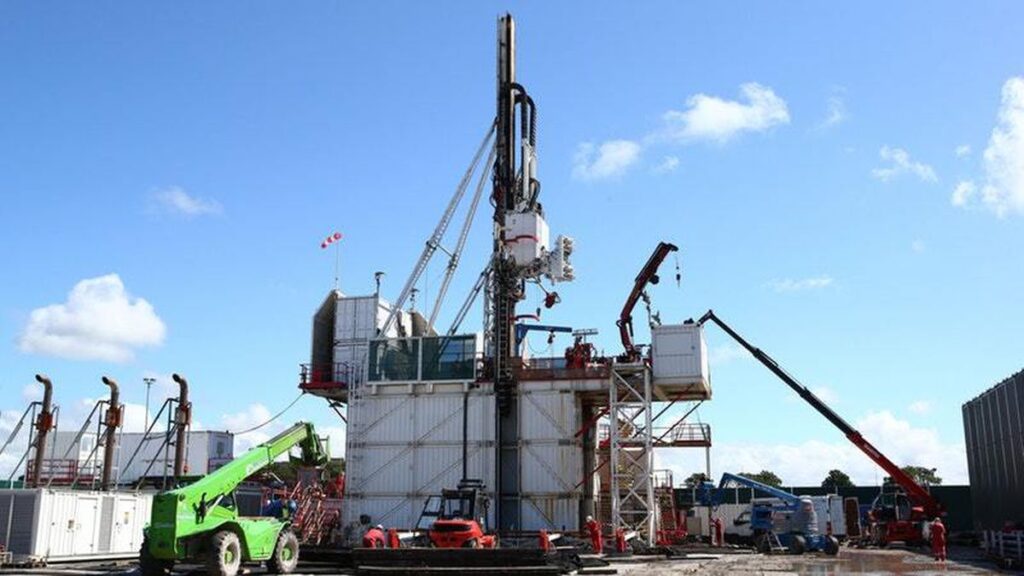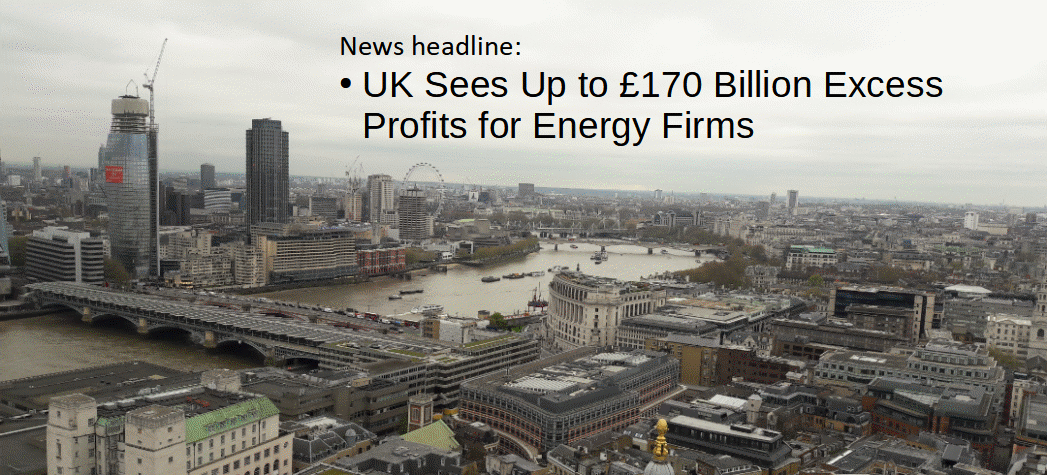TV review from Mark Langabeer, Hastings and Rye Labour Member
Bronagh Munro, an investigative reporter for the BBC’s documentary programme, Panorama, asks who is cashing in over the energy crisis? Munro states that energy costs have doubled. She interviewed a family on an average household income of £31,000. Their bill for energy has risen from £100 a month to £250. Average energy bills are expected to rise to over £5,000 by January next year. Over half of households would be pushed into fuel poverty. Munro interviewed a family who have a child that suffers from a severe form of cerebral palsy and requires a machine for feeding. The spiralling cost of electricity would result in the child having to be fed in hospital, rather than in the home.
Massive dividend payments to shareholders
Munro explains that the rise in demand following Covid and the war in Ukraine are the drivers for the price hikes in gas and electricity. Munro states that over £100 billion worth of revenue has been raised in the last year alone. The wholesale price of gas is five times higher and the chief beneficiaries are the big oil and gas companies. The documentary states that BP paid £10 billion in dividends and share buybacks. Shell paid out £15 billion in dividends. Around half of gas supplies are from the North Sea and close to 30% are supplied from Norway. A commentator stated that Norway are the new oil and gas Sheiks. Munro interviewed Christine Farnish, a former Director of Ofgem, who recently resigned because of it’s policy of protecting profits rather than consumers. She stated that only Government can provide solutions.
Munro states that the big oil and gas companies are not the only beneficiaries. Electricity prices follows the price of gas. 40% of electricity is generated by gas suppliers. 15% of Britain’s energy needs are supplied by nuclear power. They are also set to make a killing from rising electricity prices. Centrica’s profits have risen fivefold. Wind farms are also set to profit from the current crisis. Greencoat UK Wind, who own 38 wind farms have quadrupled their profits and they receive a subsidy from the state, introduced over 20 years ago. Its aim was to encourage investment in renewable energy. The Government states that £37 billion has been given to assist those who are most vulnerable. Around £3.2 billion has been raised in a windfall tax on the oil and gas giants. More is on the way states Johnson.
What will the Liz Truss government do next?
Truss’s election as Tory Leader was based on the pledge that there would be no tax rises, including no windfall taxes on those that have profited from the crisis. It has been reported that the Government will freeze energy prices at the current level. The cost would be around £100 billion. How this is to financed is still unclear. The suppliers want a loan to keep them afloat. Munro states that 29 energy suppliers have already gone bust. More will follow, if the average bill were to rise further. More people will simply be unable to pay annual bills of over £5,000.

It has been closed since August 2019 when the local area experienced a magnitude 2.9 earth tremor.
The Tories want to introduce fracking. Ie drilling deep underground for gas. There is evidence that it can cause environmental damage. It will be resisted by communities that are affected by it’s operations. They want to increase energy supply by building new nuclear power stations. It takes ten years to build a nuclear plant and there are the ongoing costs of nuclear waste. Labour had already suggested a six month freeze and a windfall tax on the oil/gas companies. All the signs are that this crisis will be longer term. The war in Ukraine is unlikely to end soon. Johnson stated that high energy bills are the price we pay for freedom and democracy. In my opinion, it’s questionable whether Ukraine is significantly more democratic than Russia. The Royal ‘we’ is false. As Munro points out, some people are doing rather well out of the conflict.
For an international and socialist solution
What is the solution to the current energy crisis? The Labour Leadership have abandoned the idea of bringing the energy companies into public ownership. Starmer states that he is a pragmatist and Labour need to be electable. Polling suggests that public ownership of the energy companies is popular with the majority of voters. The excuse used by Labour right-wingers for failing to nationalise in the past was cost. Given that it will cost over £100 billion to bail out energy suppliers, this rationale no longer applies. Even Gordon Brown, Labour’s former leader suggests nationalisation for a temporary period. As mentioned in other articles in Left Horizons, international agreements are also needed for solutions to a worldwide problem. To coin a phase, Socialism is international or it is nothing.



